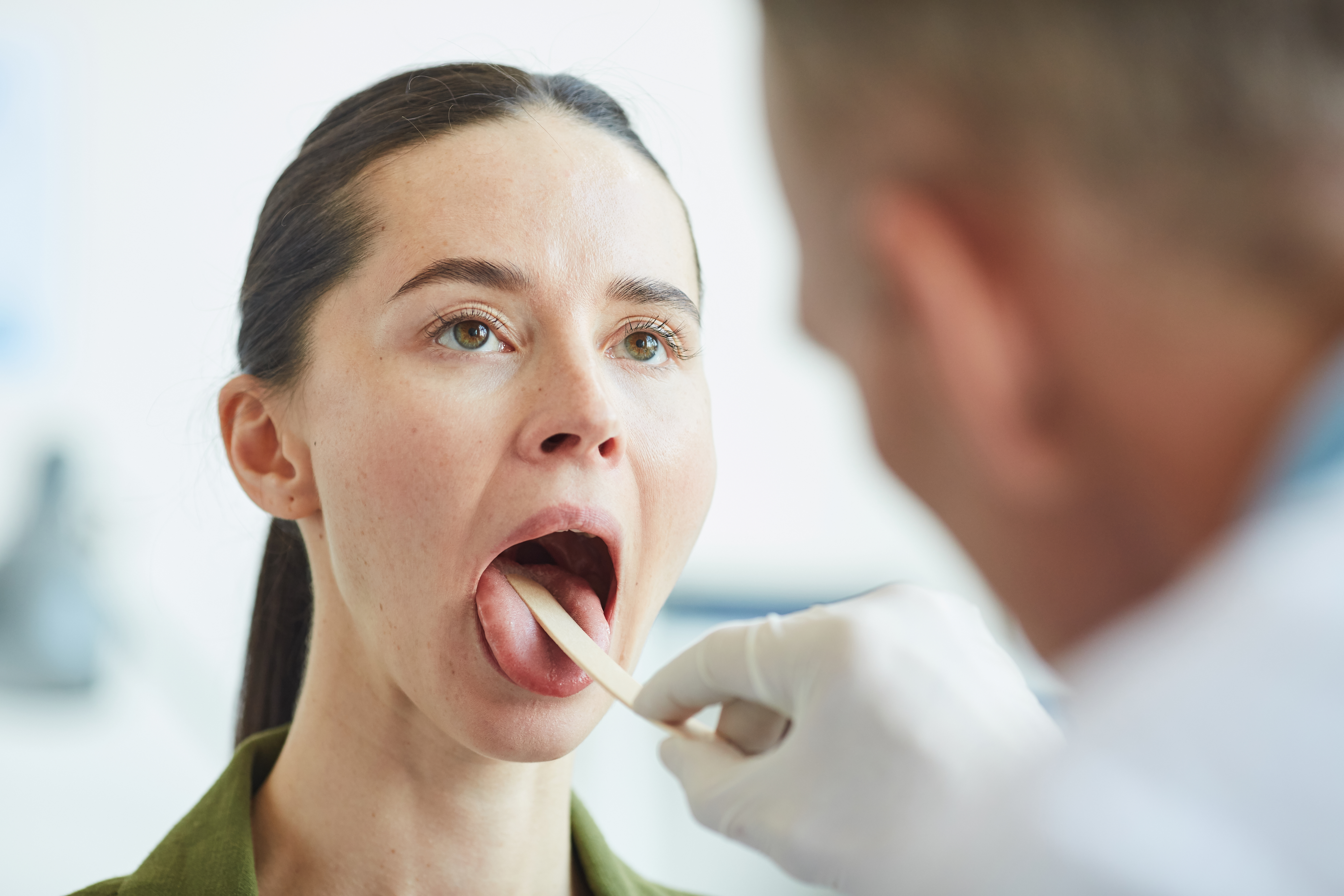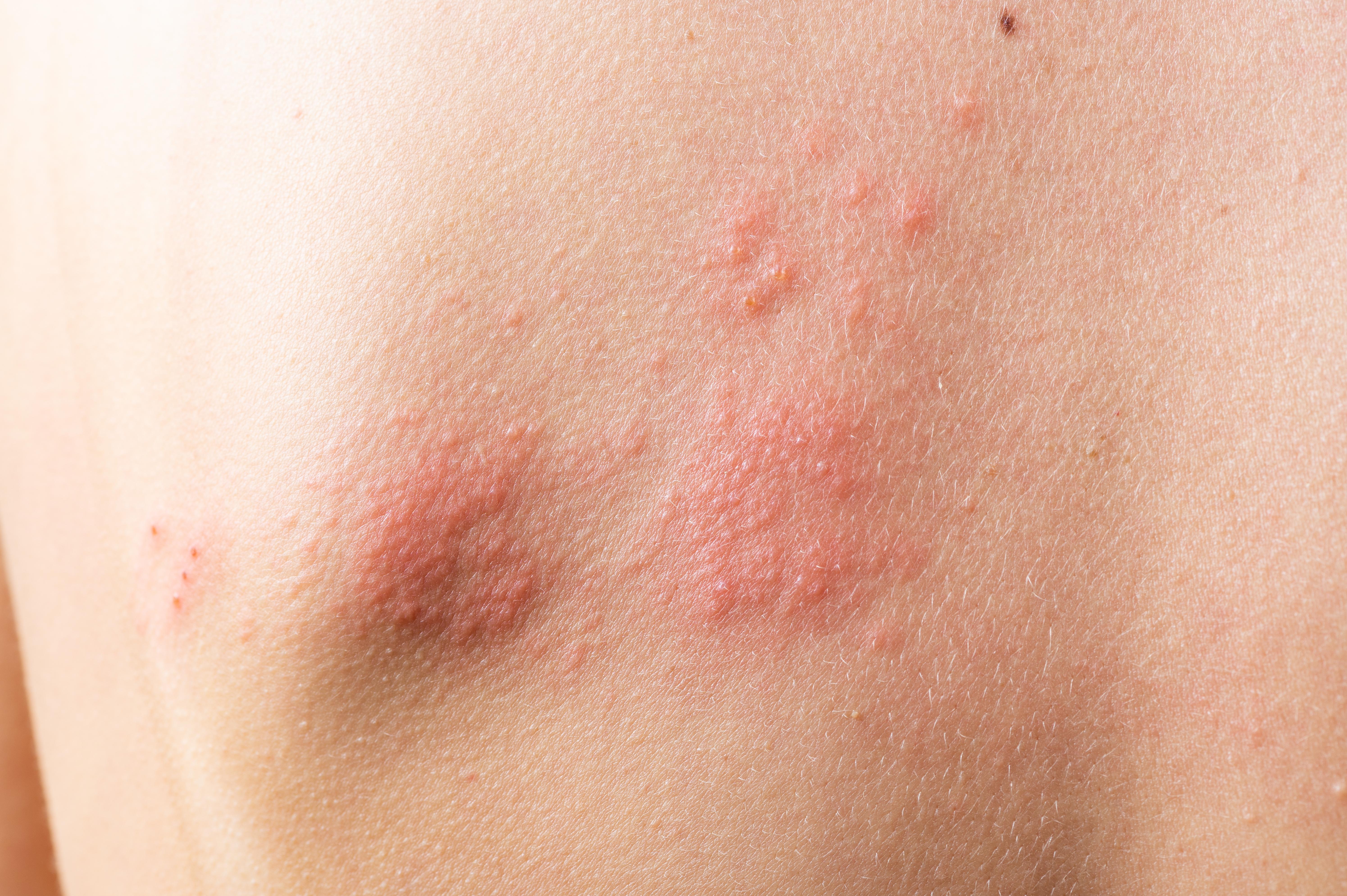Unseen Symptoms of Vitamin Deficiencies to Watch For
Not all health red flags come with a siren. Some whisper through brittle nails, persistent brain fog, or a tongue that just feels… off. Vitamin deficiencies are often silent saboteurs—disrupting your mood, energy, skin, and more in ways you might never connect to your diet. And in a world of rushed meals and processed foods, it’s easier than ever to miss the nutrients your body desperately needs. That’s why we’ve expanded our list to 20 lesser-known indicators of vitamin deficiencies—the kinds of subtle, easy-to-ignore symptoms that could be trying to tell you something important. From strange cravings to tingling toes, these signals offer powerful insight into what your body might be missing. This isn’t about panic—it’s about pattern recognition. Because when you know what to look for, you can intervene before a small imbalance turns into a major problem. Let’s decode the quiet language of deficiency—before it starts to shout.
1. The Enigma of Fatigue and Vitamin B12 Deficiency

Fatigue is one of the most common complaints presented to doctors, yet its cause can often remain elusive. One potential culprit is a deficiency in Vitamin B12, a nutrient essential for red blood cell formation and neurological function. Without adequate B12, the body struggles to produce healthy red blood cells, leading to anemia and its hallmark symptom of fatigue. Additionally, B12 is critical for maintaining the myelin sheath that protects nerve fibers, and a deficiency can result in neurological symptoms such as numbness or tingling in the extremities. Individuals at risk include vegetarians, vegans, and the elderly, as B12 is primarily found in animal products. Recognizing the signs of B12 deficiency is crucial, as early intervention can prevent long-term damage and restore energy levels. Supplementation, dietary adjustments, and medical consultation are effective strategies to combat this hidden deficiency.
2. Hair Loss and the Role of Iron

Hair loss can be distressing and is often attributed to genetic factors, stress, or hormonal changes. However, iron deficiency is another potential cause that is frequently overlooked. Iron is vital for the production of hemoglobin, the protein in red blood cells that carries oxygen to the body's tissues. When iron levels are low, oxygen delivery is compromised, affecting hair follicle health and leading to shedding. Women, particularly those of childbearing age, are at higher risk due to menstruation and pregnancy demands. Recognizing iron deficiency as a potential cause of hair loss can lead to effective interventions, such as dietary changes or iron supplements. Blood tests can confirm iron levels, and addressing this deficiency can not only improve hair health but also enhance overall energy and vitality.
3. Cracks at the Corners of the Mouth and Riboflavin

Cracks at the corners of the mouth, known as angular cheilitis, can be painful and persistent. While often attributed to environmental factors or infections, a deficiency in riboflavin (Vitamin B2) may be the underlying cause. Riboflavin plays a crucial role in maintaining healthy skin and mucous membranes, and its deficiency can lead to inflammation and cracking. This vitamin is also essential for energy production and the metabolism of fats, drugs, and steroids. Increasing riboflavin intake through diet or supplements can alleviate symptoms and support skin health. Foods rich in riboflavin include eggs, lean meats, milk, and green vegetables. Recognizing the link between riboflavin deficiency and angular cheilitis can lead to more effective treatment and prevention strategies.
4. Brittle Nails and Biotin

Brittle nails that chip or split easily can be more than a cosmetic concern; they may signal a deficiency in biotin (Vitamin B7). Biotin is essential for the health of keratin, a protein that forms the structure of nails, skin, and hair. A lack of biotin can lead to weak, brittle nails and other dermatological issues. While biotin deficiency is rare, certain groups, such as those with chronic alcohol exposure or biotinidase deficiency, are more susceptible. Supplementing with biotin can improve nail strength and appearance over time. Biotin-rich foods include nuts, seeds, eggs, and leafy greens. Understanding the connection between biotin and nail health can guide individuals in addressing this deficiency and achieving healthier nails.
5. Frequent Infections and Vitamin C

Frequent infections, such as colds or respiratory illnesses, may indicate a weakened immune system due to Vitamin C deficiency. Vitamin C is a powerful antioxidant that supports immune function and enhances the body's ability to fight off pathogens. It also plays a role in collagen production, wound healing, and the absorption of iron. Without sufficient Vitamin C, the immune system becomes compromised, leading to increased susceptibility to infections. Citrus fruits, strawberries, bell peppers, and broccoli are excellent sources of Vitamin C. Recognizing the link between frequent infections and Vitamin C deficiency can prompt dietary changes or supplementation, bolstering the immune system and reducing illness frequency.
6. Poor Night Vision and Vitamin A

Difficulty seeing in low light conditions, known as night blindness, can be an early sign of Vitamin A deficiency. Vitamin A is crucial for the production of rhodopsin, a pigment in the retina that aids in night vision. A lack of Vitamin A can lead to impaired vision and, in severe cases, complete blindness. It also plays a role in maintaining healthy skin and mucous membranes. Populations at risk include those with malabsorption disorders or limited access to Vitamin A-rich foods. Increasing intake of foods such as carrots, sweet potatoes, and liver can help prevent or reverse night blindness. Understanding the connection between Vitamin A and vision can lead to timely interventions that preserve eye health.
7. Depression and Vitamin D

Depression is a complex mental health condition with various contributing factors, including Vitamin D deficiency. Known as the "sunshine vitamin," Vitamin D is synthesized in the skin upon exposure to sunlight and plays a role in brain function. Low levels of Vitamin D have been linked to mood disorders, including depression and seasonal affective disorder (SAD). Individuals with limited sun exposure or darker skin are at higher risk of deficiency. Supplementation and increased sunlight exposure can improve mood and overall mental health. Foods such as fatty fish, fortified dairy products, and egg yolks also provide Vitamin D. Recognizing the impact of Vitamin D on mental health can lead to more comprehensive treatment approaches for depression.
8. Muscle Cramps and Magnesium

Muscle cramps, particularly those occurring at night, can be a sign of magnesium deficiency. Magnesium is essential for muscle function, nerve transmission, and energy production. It also plays a role in regulating calcium and potassium levels, which are critical for muscle contractions. A deficiency can lead to muscle spasms, cramps, and weakness. Athletes, older adults, and individuals with gastrointestinal disorders are at higher risk. Increasing magnesium intake through diet or supplements can alleviate cramps and improve muscle function. Foods rich in magnesium include nuts, seeds, whole grains, and leafy greens. Understanding the role of magnesium in muscle health can guide individuals in addressing this deficiency and reducing cramp frequency.
9. Skin Issues and Zinc

Persistent skin issues, such as acne or slow wound healing, may indicate a zinc deficiency. Zinc is crucial for maintaining skin integrity, immune function, and cell growth. It also plays a role in reducing inflammation and protecting against oxidative stress. A lack of zinc can lead to skin lesions, rashes, and increased susceptibility to infections. Populations at risk include those with malabsorption disorders or limited access to zinc-rich foods. Increasing zinc intake through diet or supplements can improve skin health and support immune function. Foods rich in zinc include meat, shellfish, legumes, and seeds. Recognizing the connection between zinc and skin health can lead to more effective treatment and prevention strategies.
10. Memory Problems and Thiamine

Memory problems and cognitive decline can be early signs of thiamine (Vitamin B1) deficiency. Thiamine is essential for brain function and energy metabolism, playing a critical role in the conversion of carbohydrates into energy. A deficiency can lead to neurological symptoms, including confusion, memory loss, and in severe cases, Wernicke-Korsakoff syndrome. Individuals at risk include those with chronic alcoholism or malabsorption disorders. Increasing thiamine intake through diet or supplements can improve cognitive function and prevent further decline. Foods rich in thiamine include whole grains, pork, and legumes. Understanding the impact of thiamine on brain health can guide individuals in addressing this deficiency and preserving cognitive function.
11. Bone Pain and Calcium

Bone pain and fragility may indicate a calcium deficiency, a mineral essential for bone health and strength. Calcium also plays a role in muscle function, nerve transmission, and blood clotting. A lack of calcium can lead to weakened bones, increasing the risk of fractures and osteoporosis. Populations at risk include postmenopausal women, individuals with lactose intolerance, and those with limited access to calcium-rich foods. Increasing calcium intake through diet or supplements can improve bone health and reduce pain. Foods rich in calcium include dairy products, leafy greens, and fortified foods. Recognizing the connection between calcium and bone health can lead to timely interventions that preserve skeletal integrity.
12. Numbness and Vitamin E

Numbness or tingling in the extremities can be a sign of Vitamin E deficiency. Vitamin E is a powerful antioxidant that protects cells from damage and supports nerve function. A lack of Vitamin E can lead to peripheral neuropathy, characterized by numbness, tingling, and weakness. Individuals with fat malabsorption disorders or genetic conditions affecting Vitamin E metabolism are at higher risk. Increasing intake of Vitamin E through diet or supplements can improve nerve function and reduce symptoms. Foods rich in Vitamin E include nuts, seeds, and vegetable oils. Understanding the role of Vitamin E in nerve health can guide individuals in addressing this deficiency and enhancing neurological function.
13. Irritability and Folate

Irritability and mood swings can be signs of folate (Vitamin B9) deficiency. Folate is essential for DNA synthesis, cell growth, and the production of neurotransmitters that regulate mood. A deficiency can lead to neurological symptoms, including irritability, depression, and cognitive decline. Populations at risk include pregnant women, individuals with malabsorption disorders, and those with limited access to folate-rich foods. Increasing folate intake through diet or supplements can improve mood and cognitive function. Foods rich in folate include leafy greens, legumes, and fortified grains. Recognizing the connection between folate and mental health can lead to more comprehensive treatment approaches for mood disorders.
14. Unexplained Bruising and Vitamin K

Unexplained bruising can be a sign of Vitamin K deficiency, a nutrient essential for blood clotting and bone health. A lack of Vitamin K can lead to increased bleeding and bruising, as well as weakened bones. Individuals at risk include those with malabsorption disorders or limited access to Vitamin K-rich foods. Increasing intake of Vitamin K through diet or supplements can improve blood clotting and reduce bruising. Foods rich in Vitamin K include leafy greens, broccoli, and Brussels sprouts. Understanding the role of Vitamin K in blood health can guide individuals in addressing this deficiency and enhancing overall well-being.
15. Weakened Immunity and Selenium Deficiency

A compromised immune system, marked by frequent colds, infections, or prolonged illness recovery, may point to selenium deficiency. Selenium is a trace mineral vital for producing antioxidants that protect cells from damage and bolster immune function. Its deficiency can impair the immune response, leaving the body vulnerable to infections and inflammation. Populations at risk include those with malabsorption disorders or residing in regions with selenium-deficient soils. To combat this deficiency, incorporating selenium-rich foods like Brazil nuts, seafood, eggs, and whole grains into your diet is essential. Selenium supplements can also be considered for individuals with significant deficiencies, but always under medical supervision to avoid toxicity. Recognizing the connection between selenium and immune health is crucial for enhancing the body's defense mechanisms. Proactively addressing selenium deficiency can reduce illness frequency, improve overall resilience, and contribute to long-term well-being.
16. Pale Lips and Iron or B12 Deficiency

If your lips look unusually pale—even when you’re not cold—it could be more than just a cosmetic issue. Pale or colorless lips may be a subtle sign of iron or vitamin B12 deficiency, both of which affect red blood cell production. Without enough healthy red blood cells, oxygen delivery across the body suffers, draining natural pigment from your skin and lips. This quiet change is easy to overlook, but it often comes alongside fatigue, dizziness, or a fast heartbeat. If your lips lack their usual rosy hue, consider checking your iron and B12 levels to rule out an underlying deficiency.
17. Burning Mouth Syndrome and B-Vitamin Deficiency

A tingling, burning, or scalding sensation in the mouth—especially on the tongue—without an obvious cause may be linked to deficiencies in B-vitamins like B1, B2, B6, or B12. This condition, known as Burning Mouth Syndrome, is often misattributed to dental issues or spicy foods, but nutrient imbalances are a common trigger. These vitamins are essential for nerve health and proper cell function in the mouth. When deficient, nerve endings may become overly sensitive or irritated. If you’ve ruled out oral infections or allergies and still experience a burning mouth, it’s worth investigating your vitamin B intake through a blood panel.
18. Goosebump-Like Skin and Vitamin A Deficiency

Rough, bumpy skin that resembles goosebumps—especially on the backs of the arms, thighs, or cheeks—may be a condition called keratosis pilaris. While harmless, it can be linked to a deficiency in Vitamin A, which supports skin cell turnover and health. When levels are low, dead skin cells accumulate and clog pores, leading to this sandpaper-like texture. Many people try to treat the bumps topically, but the root cause may lie deeper. Incorporating more Vitamin A-rich foods like sweet potatoes, carrots, and dark leafy greens—or taking a supplement under medical guidance—can help smooth the skin from the inside out.
19. Bleeding Gums and Vitamin C Deficiency

If your gums bleed easily during brushing or flossing—despite good dental hygiene—it might signal a lack of Vitamin C. This essential nutrient helps maintain strong connective tissues and supports gum health by keeping blood vessels robust. Low levels can cause the gums to become inflamed, fragile, and prone to bleeding. Unlike overt scurvy, which is rare today, this milder form of Vitamin C deficiency often flies under the radar. It’s particularly common in those who don’t eat enough fresh fruits and vegetables. Reintroducing Vitamin C-rich foods like oranges, kiwis, and bell peppers can quickly restore gum integrity and reduce bleeding.
20. Restless Legs and Folate or Magnesium Deficiency

That irresistible urge to move your legs at night—especially if paired with tingling, twitching, or crawling sensations—may point to nutrient deficiencies, particularly in folate or magnesium. These nutrients support nerve transmission and muscle function, and when depleted, they can contribute to Restless Legs Syndrome (RLS). While RLS can have multiple causes, addressing underlying deficiencies often brings relief. Folate-rich greens, magnesium-packed seeds, or doctor-recommended supplements may help settle restless limbs. If your legs seem to have a mind of their own after dark, don’t just chalk it up to stress—your body may be asking for nutritional support.
When Your Body Speaks, Listen Closely

Your body rarely shouts—but it’s always speaking. Subtle signs like brittle nails, restless legs, or an unexplained craving aren’t random quirks; they’re quiet nudges that something’s off. Vitamin deficiencies often operate in the background, slowly draining your energy, mood, and resilience—until they finally demand attention. But the beauty of these signals is that they offer a chance to course-correct before deeper damage sets in. By recognizing these lesser-known red flags, you equip yourself with the insight to act early, ask better questions, and nourish your body with real precision. This isn’t about alarm—it’s about awareness. Because when you start decoding the language of your body, everything changes: your energy, your focus, your vitality. So don’t wait for the loud crash. Trust the whisper. Your body remembers everything you give it—and everything you don’t. Make it a relationship, not an afterthought. Your health will thank you for listening.
